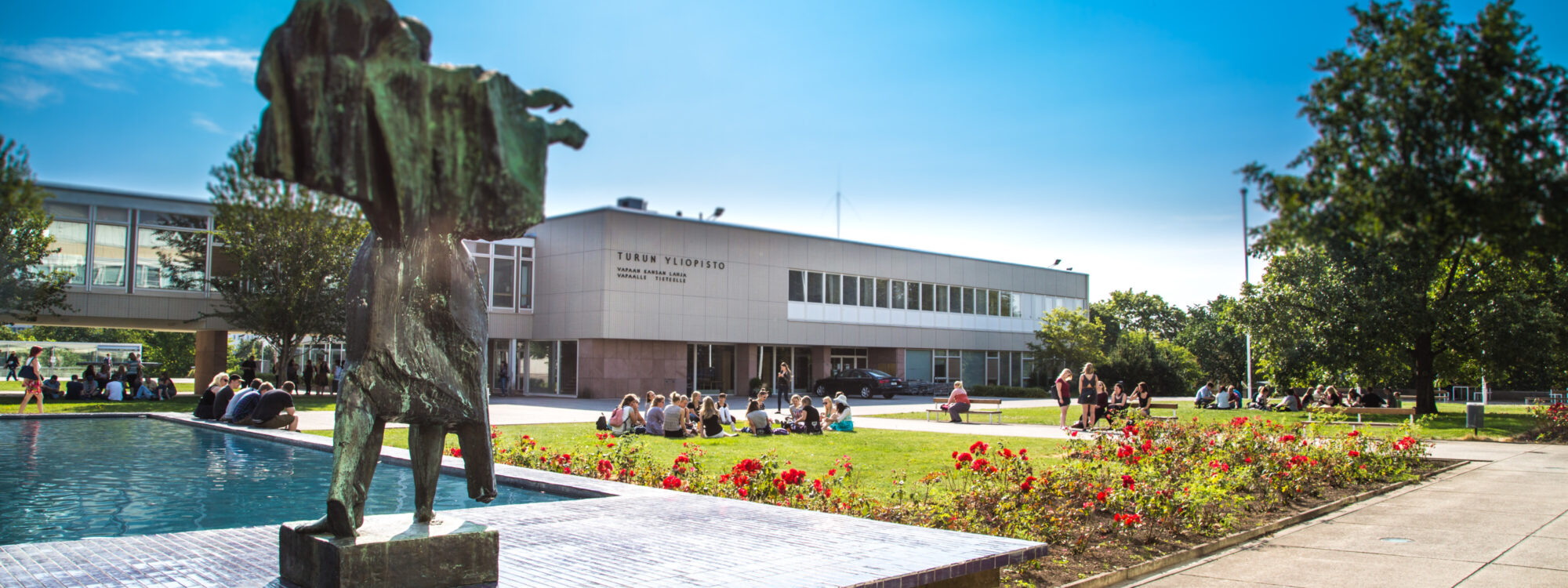Marie Skłodowska-Curie fellows
UTU-GreDiT trains doctoral researchers focusing on Green and Digital Transition, providing them with an interdisciplinary and international training ecosystem, supported by a host of external partners and secondment options, to enable them to develop as experts able to bring about transformative change.
Meet our fellows!
Temitope Akinyemi
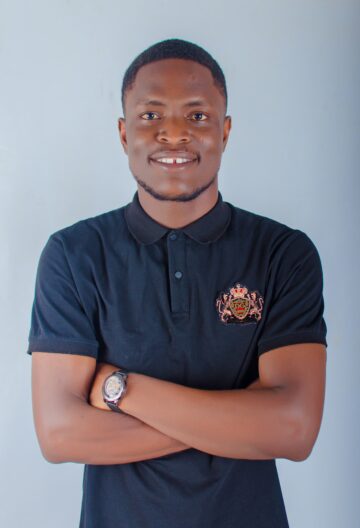
Department of Geography and Geology
Remote sensing and morphodynamic modelling in hydromorphological and sediment connectivity analyses
Temitope Emmanuel Akinyemi is a doctoral researcher in the UTU-GreDiT programme at the University of Turku, Finland, with a background in environmental management and botany. He holds an MSc in Environmental Management from the University of Stirling, UK, where he studied the impact of the Black Summer bushfires in Australia, and an MSc in Botany from the University of Ibadan, Nigeria, focusing on ethnobotany.
At Turku, Temitope’s research explores remote sensing and morphodynamic modelling to understand hydromorphological and sediment connectivity processes in river systems under climate change. Professionally, he has experience as a field officer using geospatial analysis for agricultural mapping, sustainable practices, and conservation. He’s a recipient of the Commonwealth Shared Scholarship (2022/23 cohorts) and Course Directors Prize at Stirling. Temitope’s expertise in GIS, remote sensing, and environmental sustainability supports the green and digital transition for tackling environmental challenges in river systems.
Amos Alwala
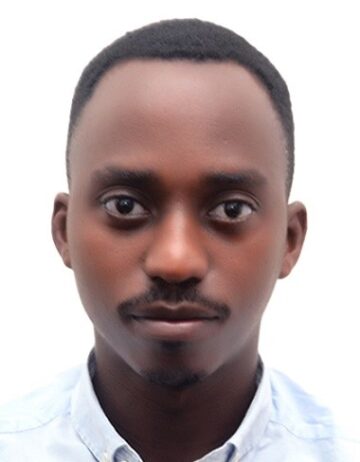
Department of Mechanical and Materials Engineering
Optimizing Drone Fleet-based Active Data Perception in Uncertain and Dynamic Environments
My name is Amos Alwala from Uganda. I am an UTU-GreDiT doctoral researcher with the Smart Systems research group, Department of Mechanical and Materials Engineering, Faculty of Technology, University of Turku. My research interests are mechanical systems design, intelligent control and robotics with a passion to design autonomous robotic systems that interact with the environment.
My PhD thesis work revolves around the use of drones-fleet for environmental monitoring and sensing. The use of drones today in environmental monitoring contributes to the crucial task for diagnosing climate impacts on the world eco-system. This research aims to optimize data collection and improve the capabilities of multiple collaborative drones used for collecting data from dynamic and uncertain environments including; windy, snow, and changing environmental conditions. Drones offer near real-time continuous and quick access to environmental data as they are not limited to specific operating time or weather.
Sewwandi Alwis
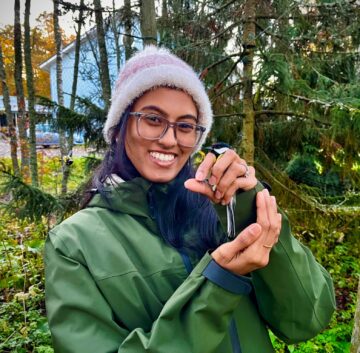
Department of Biology
Pollution-related food chain changes and their consequences to passerine birds
I am Sewwandi, from the beautiful tropical island of Sri Lanka, with a background in zoology and marine biology and a keen interest in ornithology. Trained in bird ringing, mist netting, blood collection, and vocalization recording, I have participated in fieldwork across multiple countries. My experience includes renewable energy consulting, particularly assessing wind turbine impacts on birds. My doctoral thesis focuses on how anthropogenic changes affect invertebrate abundance and nutritional quality, impacting the reproductive success of hole-nesting birds near a Finnish copper-nickel smelter in Harjavalta. Through this work, I aim to contribute valuable insights to ongoing studies on the health status of these model bird species in Finland.
Adnan Asif Rifat
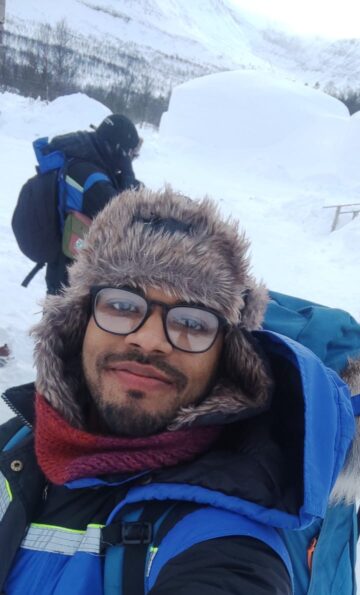
Department of Geography and Geology
Nature-based Solutions in urban water management and climate change mitigation (focused on the Nordic region)
My research topic is Nature-based solutions (NBS) for future climate resilient Nordic cities focused on combined service for stormwater management, Urban greenery and heat island impact. I am working under supervision of both the University of Turku and Lund University.
I completed my master’s in Water Resources Engineering from Lund University. I have experience with land and bathymetric survey, integrated water resources management, scale modelling of river bed scouring depth and pattern for bridge piers, Hydrological and hydraulic modeling, sustainable development goals, climate change impact and risk. All these along with my childhood memories motivated me to do research on climate adaptation of cities with NBS.
Apart from my academic interest, I am a human rights activist. I care about human, nature and planet. Respect, tolerance and kindness to others and wise use nature can make our planet better.
Eni Bullaj
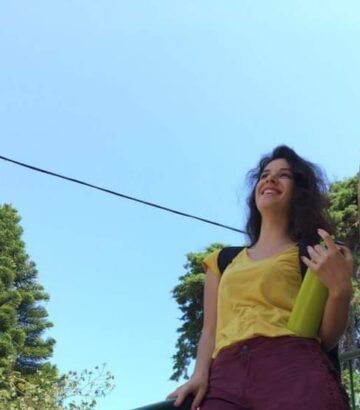
Department of Biology
Environmental Effects on Human Longevity: Spatial, Temporal and Sex variations in Historical Finland
I am a biologist with a second master in ecology. Understanding the impact of the environment on human health has always been my research topic of interest. In my PhD, I intend to explore this by studying the evolution of regional and temporal pattern of human lifespan in Finland. The data pertain to historical Finland from 1750 to 1850. We have studies on longevity indicators and their disparities between man and women from modern times. Whereas, from preindustrial or early industrial times they exist only for selected regions. Finland is a unique case, in that death registers were made obligatory since the 17th century, which makes this study and comparisons possible. Different dataset will be utilised to understand different contributors to the changing patterns, i.e. a cultural and environmental database as well as a pedigree database. This last, will provide insights to the role of the genetic component in comparison to the environment in human longevity.
Frank Chimaimba
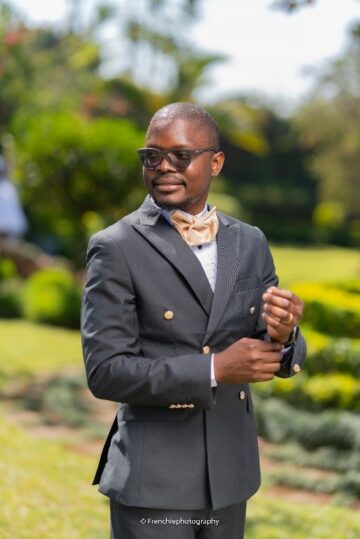
Department of Geography and Geology
Diverse Values of nature in urban green infrastructure planning of Lilongwe City, Malawi: Towards sustainable and just African cities
I am an early career researcher in the field of Geography with over 5 years working experience in Africa with Non-Governmental Organizations (NGOs) in both development and research projects, particularly, in the field of Natural Resources Management, Urban green infrastructure, and Resilience.
My doctoral research title is “diverse values of nature in urban green infrastructure planning of Lilongwe city, Malawi: Towards just and sustainable cities”. In pursuit of just and sustainable cities, nature is an important ingredient, yet it’s being lost, with high occurrences in Africa. In this study, I would like to apply value-centered approach proposed by IPBES in the lens of just and sustainable city to promote nature and biodiversity in African city, a case of Lilongwe city, Malawi.
Somnath Chindhe
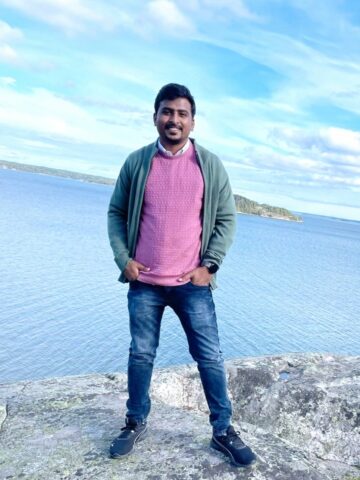
Department of Biology
Human Genomic Changes due to past epidemics and environment in North-Eastern Europe
I have completed my Master’s degree in Molecular and Human Genetics from India. During my master’s studies, I have studied various human genetic disease mechanisms and focused on how their susceptibilities vary among populations influenced by genetic variation. This experience deepened my interest in human evolutionary genetics, especially to understand genetic adaptation to different environmental conditions. In my doctoral research, I am passionate about understanding the human genomics changes in North-Eastern Europe due to past infectious diseases and environmental changes. In this project, I will combine both ancient and modern human DNA along with a life history traits dataset in a Finnish context to examine the effects of past events on human genomes in the past versus the present population.
Outside of research, I enjoy watching movies and listening to music.
Leticia Duarte
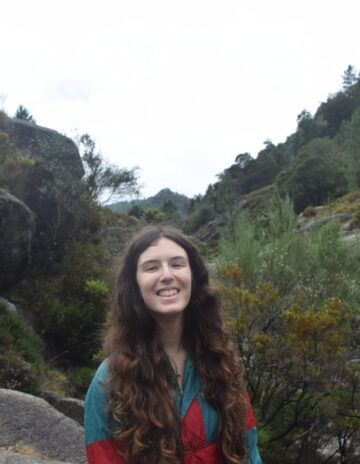
Department of Biology
The effects of renewable energy construction on wildlife behavior
I am a doctoral researcher from the Animal Ecology group at the University of Turku, currently focusing on the impact of wind farms on mammals in boreal forests, particularly wild forest reindeer and wolves. Considering the rapid expansion of wind energy in Finland, we must understand its possible effects on the ecosystem. While its effects on birds and bats are well-studied (due to the direct impact of fatal collisions with wind turbines), far less is known about the indirect impact on terrestrial species. My current plan is to analyse existing data on these species, focusing on their behaviour, population dynamics, and habitat use, to identify potential changes linked to wind farm development. Additionally, I plan to gather more comprehensive data on wolf activity by deploying recording devices. Through my research, I hope to contribute to the development of sustainable energy policies that reconcile renewable energy production and biodiversity conservation.
Emmanuel Jeffrey Dzage

Biodiversity Unit
Unregulated Mining and Declining Ecosystems and Biodiversity in the Tropics: the Case for Regenerative Business Models
Emmanuel Jeffrey Dzage is a doctoral researcher with the Biodiversity Unit of the Doctoral Programme in Biology, Geography and Geology (BGG). With a background in sustainable business practices as expressed through development research, his work focuses on the nexus between regenerative models of artisanal and surface gold mining and biodiversity protection within selected hotspot zones in the tropical regions of West Africa and the Amazon. Specifically, Emmanuel’s work shall explore innovative approaches to land reclamation, forest and biodiversity restoration, stakeholder collaboration and economic incentives for the benefit of local communities and ecosystems. Passionate about connecting the needs of industry to environmental stewardship and ecological conservation, Emmanuel aims to contribute to policy solutions that transform the unregulated gold mining sector into a force for global ecological and social resilience.
Constantina Georgiade
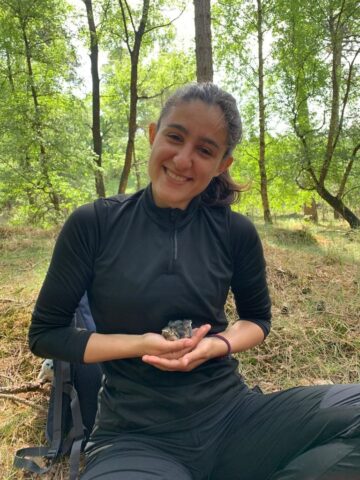
Department of Biology
The effects of renewable energy sources on wildlife in the boreal forest
My name is Constantina Georgiade and I am a doctoral student in the Animal Ecology Group at the University of Turku, where I began my PhD as part of the UTU-GreDiT program. My research focuses on the effects of wind turbines on various bird species that inhabit boreal regions in Finland. Since 2012, the number of Wind Energy Facilities (WEFs) in Finland has rapidly increased, surpassing fifteen hundred turbines by 2023. This growth has raised concerns about the impact of WEFs on Finnish wildlife. In my research, I will specifically examine how the presence of wind turbines affects birds’ behaviour, breeding success, and movement. I will analyse count and tracking data collected for several vulnerable bird species, including the Golden eagle and the Tengmalm’s owl, which are classified as endangered and near-threat, respectively, within Finland. My main goal is to provide insights into the sustainable development of renewable energy in harmony with the surrounding wildlife.
Akanksha Ingale
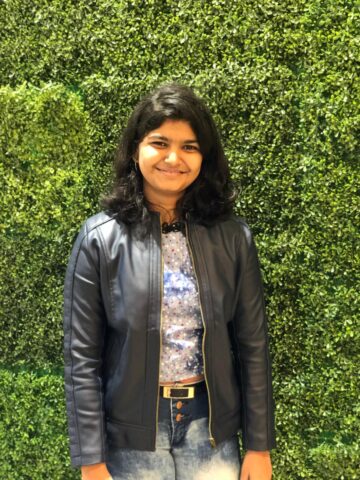
Department of Biology
Understanding the public perception of invasive species to enhance management
I am Akanksha Ingale, graduated with an integrated BS-MS degree from the Indian Institute of Science Education and Research, Pune. For my Master’s thesis, I focused on understanding the ecological strategies and habitat association of invasive plant species of the Northern Western Ghats and Konkan region in India. For my doctoral research at the University of Turku, I will investigate public awareness and perceptions of invasive alien species (IAS) across taxa and how socio-economic factors influence perceptions. The aim is to use this knowledge to enhance the management of IAS.
Outside academia, I enjoy playing video games, travelling, trying different cuisines, photography, listening to music, and reading.
Sadegh Kaboli
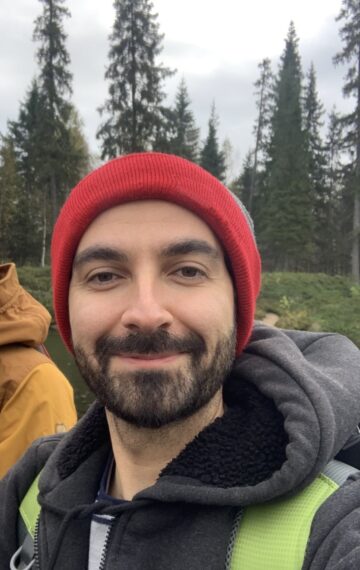
Department of Geography and Geology
Climatological and Anthropogenic Controls on Catchment-Scale Hydrological Processes in Boreal and Sub-Arctic Environments
I hold a Master’s degree in Civil Engineering with a specialization in Water Engineering and Hydraulic Structures. During my master’s studies, I gained experience in climate change, hydrological modeling, hydraulic modeling, and statistical analysis. Currently, as a doctoral researcher in the UTU-Gredit program at the University of Turku, I am working with the Coastal and Fluvial Research Group, researching the impact of climate change and anthropogenic activities on hydrological processes in boreal and sub-Arctic environments. I am delighted that this position allows me to broaden and deepen my expertise in these fields while continuing to gain valuable experience.
Throughout my PhD journey, I will focus on climate change impacts, hydrological modeling, statistical analysis, spatial analysis, and remote sensing at the catchment scale.
John Kalimenze
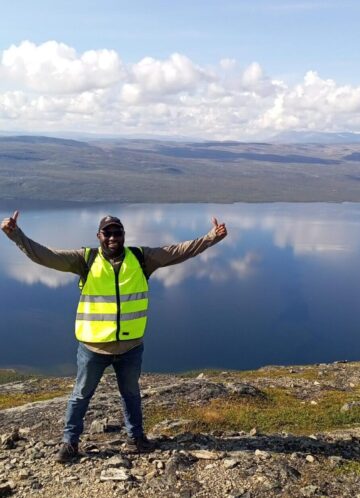
Department of Geography and Geology
Battery and base metal mineralization processes and comparison of Svecofennian metallogenic provinces
My name is John Kalimenze, and I am a dedicated geologist with over 14 years of hands-on experience. I earned my Bachelor’s Degree in Geology from the University of Dar es Salaam in Tanzania and furthered my education with a Master’s Degree in Petroleum Chemistry from the University of Aberdeen in the United Kingdom. I am currently pursuing a PhD in Geology at the University of Turku, where I am passionately exploring the complex processes of battery and base metal mineralization. My research focuses on these processes within the Svecofennian metallogenic provinces, aiming to uncover the mechanisms behind the mineralization of these essential metals. This involves identifying their sources, understanding the nature of the enriching fluids, and determining the timing of deposit formation. I am grateful for the support from the UTU-GreDiT Programme, which is aiding my career development through this doctoral research funding.
Mahdi Khodaverdi
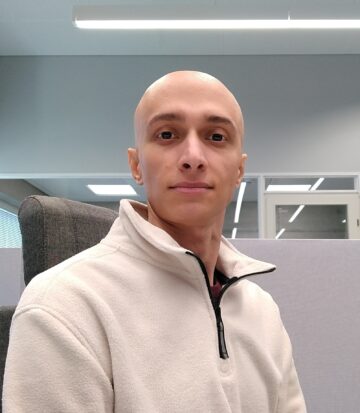
Department of Mechanical and Materials Engineering
Flexible electrolysis for hydrogen production
Mahdi Khodaverdi is a PhD researcher in materials engineering at the University of Turku. He holds a BSc in Chemical Engineering from Isfahan University of Technology and an MSc in Energy Systems Engineering from the University of Tehran, where his thesis focused on enhancing electrocatalytic activity and performance of direct methanol fuel cells. His current research aims to advance sustainable hydrogen production through the development of flexible, cost-effective electrochemical systems that support the transition to green energy. By investigating low-cost materials and assessing their performance under real-world conditions, Mahdi seeks to create scalable hydrogen production solutions that balance economic and performance considerations. His work includes a techno-economic evaluation to gauge the viability of these systems, contributing to the broader goal of establishing hydrogen as a competitive, low-carbon energy source.
Hilary Julius Mvungi
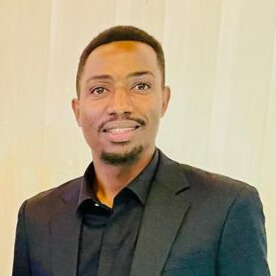
Department of Geography and Geology
Big Earth data, citizen science and AI in co-creation and deployment of innovative climate risk data products and tools for African cities
I am Hilary Julius Mvungi, a Doctoral Researcher at the University of Turku, under the UTU-GreDiT programme, co-funded by the EU’s Horizon Europe research and innovation programme’s MSCA. With a background in urban planning and geospatial technologies; I have worked as a Geospatial Specialist on various consultancy and research projects in academic and companies at local and international levels since 2017. My research experience lies in applying geospatial methods with mixed approaches. Currently, I am interested in GeoAI research methods, leveraging transdisciplinary approaches for societal impact in the Global South. My PhD project focuses on integrating GeoAI with community engagement and citizen science to improve climate risks management in Sub-Saharan African cities. I’m inspired by the flexibility of GeoAI in a transdisciplinary research environments for demand-driven solutions for environmental issues, particularly in inclusive spatial planning, urbanization, and climate change.
Joshua Nabuti
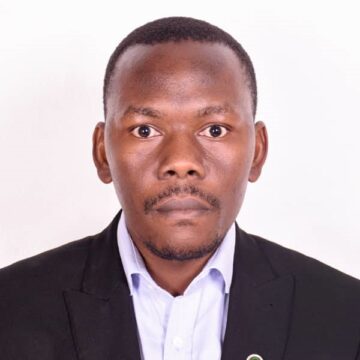
Department of Computing
Photosynthesis Research and AI-Based Energy Optimization of Controlled Environment Agriculture
Nabuti Joshua is a Ugandan professional Academic and Talent manager, currently pursuing a Doctor of Science (DSc) project at the University of Turku (UTU), focused on technology design for green digital transitions. His background is in communications engineering and bioelectronics. He is the Co-founder of Uttermost Technology Ltd in Uganda, a corporation dedicated to technology, education, and talent development, promoting research and innovation among early learners and professionals.
Under the supervision of Professor Jukka Heikkonen, Joshua’s research at UTU-GreDiT focuses on addressing the urgent need for sustainable farming solutions. His work emphasizes Artificial Intelligence (AI) and advanced sensor technologies within Controlled Environment Agriculture (CEA) systems. By integrating expertise from electronics, photonics, and biosensors, he aims to enable precise control over variables such as temperature, humidity, light, photosynthesis, and nutrient supply. This technological approach seeks to create optimal plant growth conditions while reducing energy consumption in CEA systems..
Bertha Osei
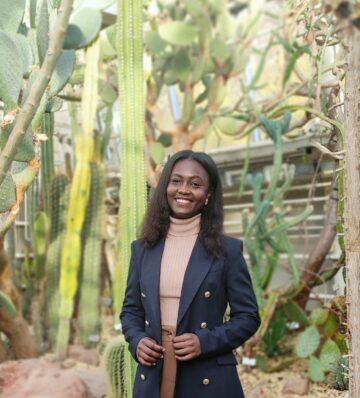
Department of Management and Entrepreneurship
Challenges and tensions in regenerative business preventing green and just transition
I am currently doing my PhD with the Management and Organization department at the Turku School of Economics. The urgent need for companies to pursue a regenerative strategy that supports social well-being and planetary health is the subject of my research. The goal of my study is to classify and identify barriers to the adoption of regenerative business strategies. In order to make green transitions feasible and advantageous for biodiversity and social well-being, my study eventually seeks to create a framework that may assist organisations in successfully navigating these challenges and tensions.
Alexander Pape
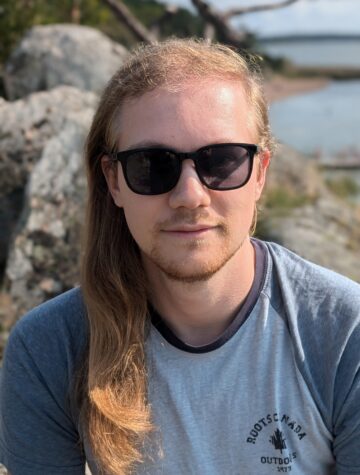
Department of Biology
Influence of surface water browning and microplastics on bioavailability of contaminants of emerging concern and ecophysiological consequences on aquatic biota
I’ve completed my Master’s in Ecology and Evolutionary Biology at the University of Freiburg and University of Frankfurt, Germany. My research focuses on the interaction of selected PFAS and different vectors such as microplastics on zebrafish (Danio rerio) under varying environmental conditions. The first aim of my thesis is to investigate whether the presence of vectors can influence the toxicity of PFAS by increasing their bioavailability. Secondly, I will examine how this interaction changes in unfavourable conditions such as sudden heat waves and hypoxia. My research will include studies with both zebrafish larvae and adults to record a variety of molecular and physiological measurements. The aim of my research is to gain more knowledge on how climate change and the increasing presence of vectors affect the toxicity of PFAS on the aquatic environment, and if we have to strengthen our efforts to decrease pollution even further.
Kjell Ratajczak
Department of Biology
Ecosystem consequences of an invasive marine predator in a shallow benthic habitat
Completed my BSc. in Biological Sciences at the University of Rostock in July 2020 and my MSc. in Marine Biology at the University of Groningen in January 2023, before starting my PhD research as part of the EU co-funded UTU-GreDiT program in August of 2024.
As biotic invasions, especially in marine ecosystems, are predicted to increase in the future, understanding their effects on recipient ecosystems and organism communities and how invasions develop over time, as well as how native organism adapt to pressure induced by non-indigenous species is critical. Thus, my research focuses on the effects of the invasive Harris mud-crab (Rhithropanopeus harrisii) on the organism communities and ecosystem functions of the shallow rocky littoral of the Archipelago Sea, Finland.
More specifically, my research focuses on the effects of the invasion, which cascade down the trophic levels and affect the primary producer community composition and thus nutrient and energy transport to higher trophic levels and ecosystem functions, especially carbon sequestration. This is important to understand, as this heavily affects the potency of these ecosystems as carbon sinks, which is important in understanding and predicting their current and future role in combating climate change.
Marco Rodriguez
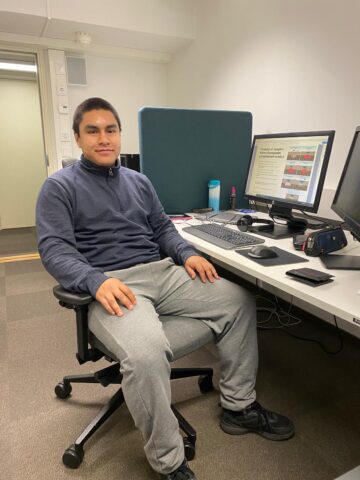
Department of Geography and Geology
The origin and green element potential of Archean metabasalts in Rommaeno and Lake Inari regions
I am a geoscientist focused on understanding the magmatic and metamorphic processes shaping Earth’s crust. My research integrates geochemistry, mineralogy, petrology, and isotopic geochemistry. Since my B.Sc. studies I have worked with geochemistry, mineralogy, and petrology of granitoids related to subduction zones. During my M.Sc. I was interested in understanding rock-fluid interaction at high pressures and temperatures upon mantle metasomatism. Currently, my PhD research under the supervision of Dr. Esa Heilimo focuses on the geochemistry, mineralogy, and isotopic characteristics of Archean TTG-related metabasalts in northern Finland’s Rommaeno and Lake Inari areas.
Ali Salmasi
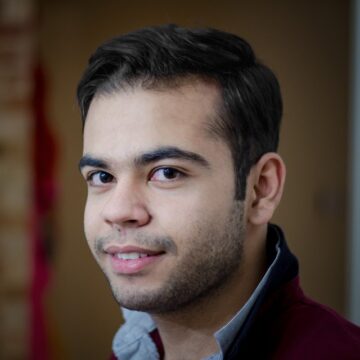
Department of Computing
Collaborative Unmanned Surface and Aerial Vehicles for Sustainable Environment Monitoring
I am Ali, a doctoral researcher at the Turku Intelligent Embedded and Robotics Systems lab (Faculty of Technology), working on the UTU-GreDiT project. I have a background in computer vision and machine learning, and a passion for advancing autonomous systems and perception technologies.
In my PhD project, I am developing a heterogeneous surface-aerial collaborative system to enhance autonomous monitoring in fluvial and coastal environments. The research focuses on designing algorithms for a collaborative unmanned surface vehicle and multi-unmanned aerial vehicle system, enabling long-term autonomy and comprehensive situational awareness. A key innovation in my work is the integration of vision-language models to enable better understanding and interaction between autonomous agents and their environments. This approach holds significant potential for improving the adaptability and decision-making of autonomous vehicles, particularly in complex, dynamic settings like those in remote environments. My goal is to push the boundaries of autonomous collaboration in challenging real-world scenarios.
Mark Spa
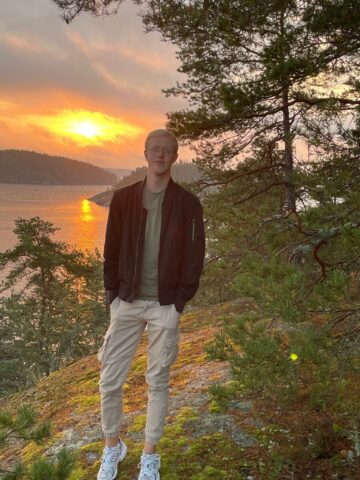
Department of Biology
Evolution of human health in past and modern environments
I’m Mark from the Netherlands, where I completed my master’s in “Modeling for the Life Sciences” in 2023 at the University of Groningen. Since August, I have been working on my PhD, focusing on evolutionary human health. My PhD project initially aims to explore the spatial distribution of historical causes of death in Finland from 1750 to 1850. Given the significant variations in human health in contemporary Finland, I plan to later compare the historical patterns I uncover with those seen in more recent times. I am also interested in how environmental, cultural, and sociodemographic factors impact these patterns. Through this research, I hope to shed light on how far back in history these health disparities were already present and potentially explain why they emerged in the first place.
Monica Timbuka
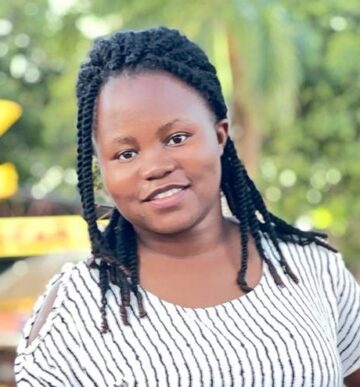
Department of Geography and Geology
Open data, digital tools and youth engagement in public works for green transition and climate resilience in Africa
My name is Monica Timbuka from Tanzania. I am a doctoral researcher at the Department of Geography and Geology of the University of Turku. I did my master’s degree in Geo-information and Earth Observation for Natural resources Management at the University of Twente, Faculty of ITC in the Netherlands. I have experience in Geospatial technologies, remote sensing, Land use modelling big data, climate adaptation and resilience, community and participatory mapping in African setting.
My topic focused on Open data, digital tools and youth engagement in public works for green transition and climate resilience in Africa. The focus is to diversify the ways youths particularly female youths can be introduced to and engaged into different digital public works and novel data collection campaigns related to the co-creation of green transition and climate resilience solutions in African cities based on the opportunities of digital revolution, FOSS technologies and participatory methodologies.
Alycia Valvandrin

Department of Biology
The impact of hypoxia on fish behaviour, cognition, and neurology within and across generations
Alycia completed her MSc at the European University Institute of the Sea in Brest, France, focusing on marine biological sciences and conducted her M2 thesis at the Anttila Lab. She is currently delving deeper into the questions raised during her M2 thesis by pursuing a PhD on the impact of hypoxia within and across generations on the behaviour of three-spined stickleback. Her PhD aims to uncover the effects of plasticity and adaptation to fluctuating hypoxia on three different aspects of behaviour: their potential to evolve, cognitive abilities, and the brain volume and neurogenesis – the central element in the development of behaviour. The main purpose of her research is to gain a better understanding of how environmental changes, such as hypoxia, impact aquatic species in a context of current global changes and anthropogenic pressures, and determine if aquatic species will be able to cope to these changes over different time scales.
